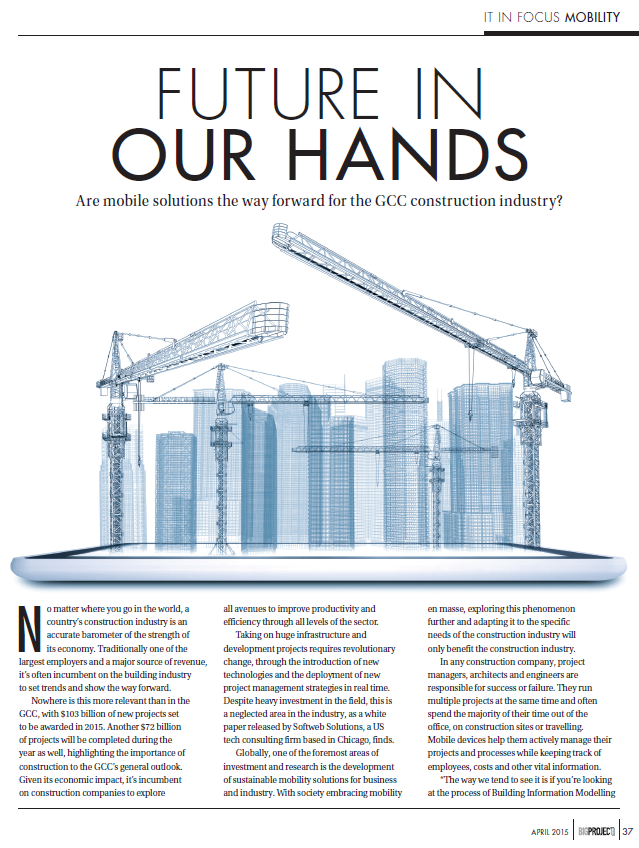Future in our hands

No matter where you go in the world, a country’s construction industry is an accurate barometer of the strength of its economy. Traditionally one of the largest employers and a major source of revenue, it’s often incumbent on the building industry to set trends and show the way forward. Nowhere is this more relevant than in the GCC, with $103 billion of new projects set to be awarded in 2015. Another $72 billion of projects will be completed during the year as well, highlighting the importance of construction to the GCC’s general outlook.
Given its economic impact, it’s incumbent on construction companies to explore all avenues to improve productivity and efficiency through all levels of the sector. Taking on huge infrastructure and development projects requires revolutionary change, through the introduction of new technologies and the deployment of new project management strategies in real time.
Despite heavy investment in the field, this is a neglected area in the industry, as a white paper released by Softweb Solutions, a US tech consulting firm based in Chicago, finds. Globally, one of the foremost areas of investment and research is the development of sustainable mobility solutions for business and industry. With society embracing mobility en masse, exploring this phenomenon further and adapting it to the specific needs of the construction industry will only benefit the construction industry. In any construction company, project managers, architects and engineers are
responsible for success or failure. They run multiple projects at the same time and often spend the majority of their time out of the office, on construction sites or travelling. Mobile devices help them actively manage their projects and processes while keeping track of employees, costs and other vital information.
Peter Cheney, managing director of CCS Gulf, a developer of construction cost management software, points out that decentralising processes has made a huge difference in the way the construction industry has gone about doing business. “It has only been brought about by the use of the internet as a communications medium. Certainly, decentralised processes are putting the responsibility for the captured information where the responsibility belongs, which is out there on the site.”
Read more in Big Projects Issue April 2015



